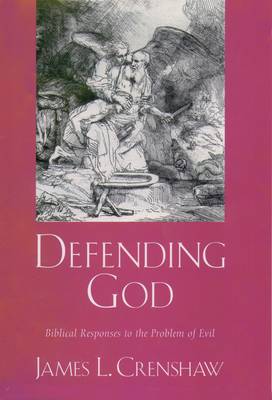
- Afhalen na 1 uur in een winkel met voorraad
- Gratis thuislevering in België vanaf € 30
- Ruim aanbod met 7 miljoen producten
- Afhalen na 1 uur in een winkel met voorraad
- Gratis thuislevering in België vanaf € 30
- Ruim aanbod met 7 miljoen producten
Zoeken
€ 161,45
+ 322 punten
Omschrijving
In the ancient Near East, when the gods detected gross impropriety in their ranks, they subjected their own to trial. When mortals suspect their gods of wrongdoing, do they have the right to put them on trial? What lies behind the human endeavor to impose moral standards of behavior on the gods? Is this effort an act of arrogance, as Kant suggested, or a means of keeping theological discourse honest? It is this question James Crenshaw seeks to address in this wide-ranging study of ancient theodicies. Crenshaw has been writing about and pondering the issue of theodicy - the human effort to justify the ways of the gods or God - for many years. In this volume he presents a synthesis of his ideas on this perennially thorny issue. The result sheds new light on the history of the human struggle with this intractable problem.
Specificaties
Betrokkenen
- Auteur(s):
- Uitgeverij:
Inhoud
- Aantal bladzijden:
- 288
- Taal:
- Engels
Eigenschappen
- Productcode (EAN):
- 9780195140026
- Verschijningsdatum:
- 21/04/2005
- Uitvoering:
- Hardcover
- Formaat:
- Genaaid
- Afmetingen:
- 163 mm x 241 mm
- Gewicht:
- 566 g

Alleen bij Standaard Boekhandel
+ 322 punten op je klantenkaart van Standaard Boekhandel
Beoordelingen
We publiceren alleen reviews die voldoen aan de voorwaarden voor reviews. Bekijk onze voorwaarden voor reviews.











